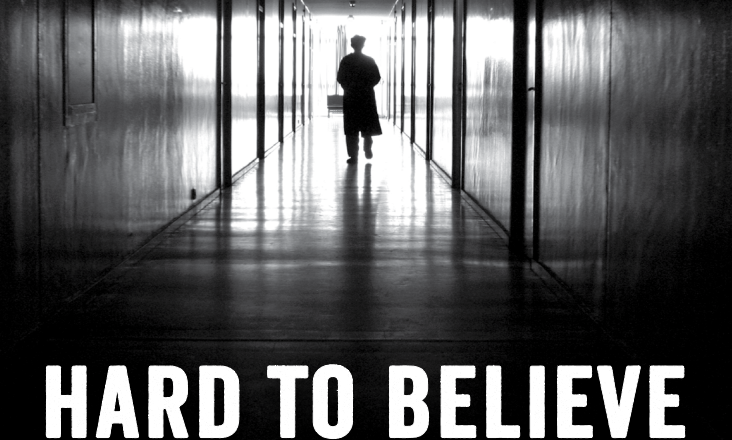
Hard to Believe
Ken Stone
‘Chuggers’ have become such a ubiquitous sight on the streets, pestering pedestrians for signatures or ongoing donations, that we’ve easily developed well-honed evasion strategies.
Walking through light drizzle down a Melbourne laneway recently, I couldn’t avoid walking past two men – one with a clipboard and one with a placard. I think they were men; my eyes were too focused on the ground to notice too much about them. I didn’t even read the placard. But a gentle, friendly smile seemed to catch my peripheral vision as I trudged past.
Soon after, a colleague entered the office talking about a conversation he’d had with the same people.
They were raising awareness of illegal organ harvesting in China from persecuted Falun Gong – or Falun Dafa – practitioners. They were also promoting the Melbourne premiere of Hard to Believe, a film that seeks to bring global attention to a massive human rights issue being ignored the world over.
In the film, investigative writer Ethan Gutmann notes with regret that the protest methods of Falun Gong members who have fled to countries like Australia and America are not particularly effective in Western communities, where noise and brashness often get attention.
Many of us are aware – at least in the broadest sense – of Falun Gong, and the persecution of its members by the Chinese Communist Party over the past 20 years.
Hard to Believe, directed by Ken Stone, delves a little deeper. The documentary exposes the shocking, government-sanctioned actions, undertaken with the full complicity of hospitals, that have allowed upwards of 150,000 unauthorised organ transplants from alive and healthy Falun Gong practitioners to patients from China and overseas.
‘Expose’ is perhaps the wrong word. The details have been out there for years – governments and media in the West have just been largely ignoring it.
The film relies heavily on interviews, largely from North American and British men, including doctors, journalists and lawmakers, all outraged by the silence. There is a little footage from China to give a real sense of the brutality of what is happening, though it is understandable that such imagery is rather difficult to come by.
Yet the story is compelling. The film is direct and succinct at just 56 minutes. It does not get tangled in complexities or long back-stories. The facts are presented in a simple fashion, and the message is loud and clear.
It contains powerful personal stories: the Israeli doctor shocked to hear of a patient with a heart transplant scheduled for a specific day in two weeks’ time and a former Chinese surgeon who was ordered to perform transplants.
And it seems that, slowly, these voices are being heard.
A Hollywood film based on the ‘transplant tourism’ book Larry’s Kidney, which was to star Will Ferrell and Zach Galifianakis, has been put on hold due to concerns about promoting ‘organ tourism’ to China after producers were shown Hard to Believe.
The title ‘hard to believe’ references both the fact that this is happening, and that the global community – with a few exceptions, such as Israel, which moved to stop transplant tourism to China – do and say nothing.
Still, it is sadly hard to see this film having the impact it deserves to have in a world where engagement is determined less by importance and more by the ability to get noticed.



